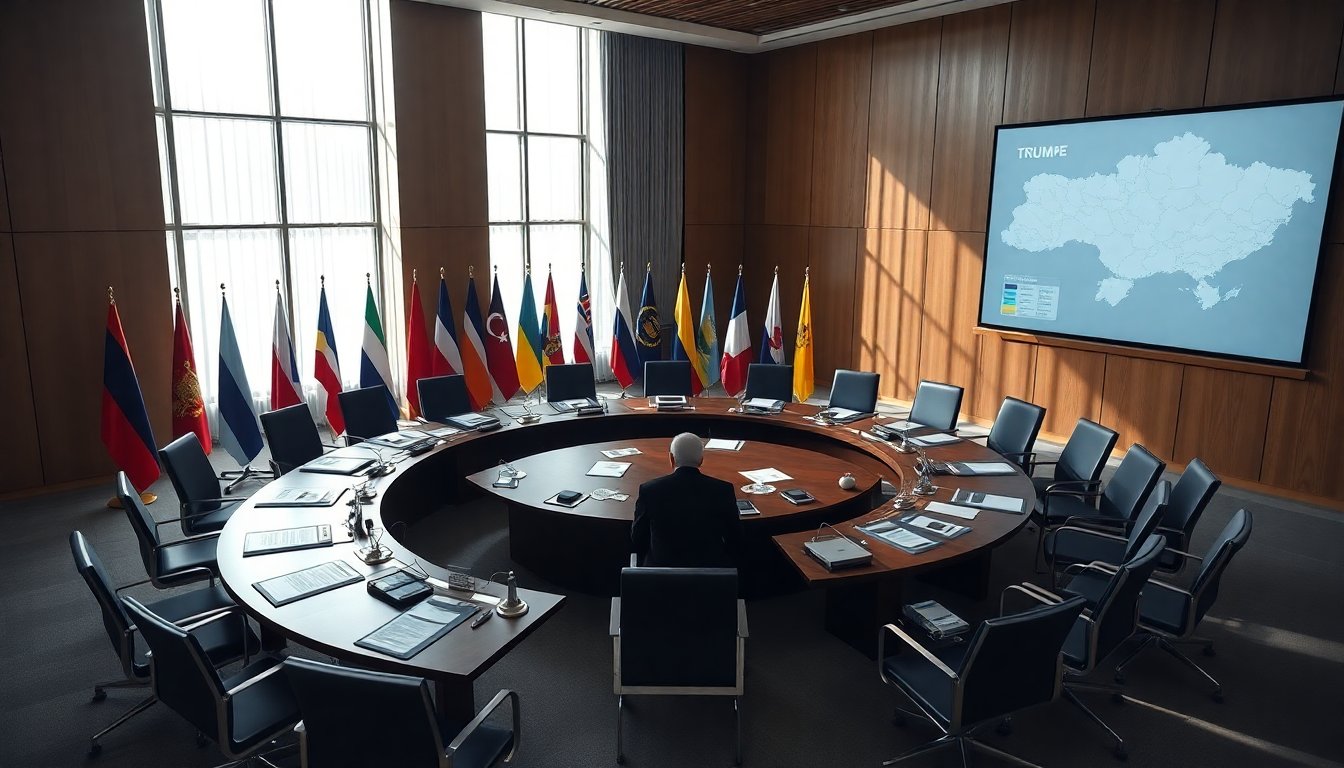Table of Contents
Analysis of Trump’s shifting stance on Ukraine
The ongoing conflict in Ukraine continues to attract significant international attention, especially regarding the position of U.S. President Donald Trump. Recent developments suggest a discernible shift towards the perspective of Russian President Vladimir Putin, prompting concerns about Trump’s commitment to Ukraine’s sovereignty. This article examines Trump’s recent actions and statements to provide insight into the evolution of his policy and its implications for Ukraine’s future.
Recent interactions and policy shifts
In the past month, indications emerged that former President Donald Trump might take a more assertive stance against Russia, hinting at a potential alignment with the European Union. Initial remarks made during the U.N. General Assembly sparked speculation that he could be ready to support Ukraine in a more decisive manner. However, these statements appeared to be a temporary shift rather than a substantial change in policy.
Following his suggestion to provide Ukraine with Tomahawk cruise missiles, Trump participated in a lengthy two-hour phone conversation with Russian President Vladimir Putin at the latter’s request. The next day, during a meeting with Ukrainian President Volodymyr Zelenskyy at the White House, Trump notably tempered his earlier position on the missile agreement, stating his belief that Putin seeks peace.
The implications of Trump’s private discussions
Experts indicate that Trump’s stance on Ukraine aligns with his previous actions. Phillips O’Brien, a professor of strategic studies at the University of St. Andrews, notes that Trump’s administration has frequently restricted financial support for Ukraine and has not introduced new sanctions against Russia. Additionally, there has been persistent pressure on President Zelenskyy to cede territory, which weakens Ukraine’s negotiating position in the ongoing conflict.
O’Brien further explained that Zelenskyy might have been led to believe he could obtain Tomahawk missiles. However, he encountered a Trump who appeared ready to impose additional humiliation. While Trump did not openly criticize Zelenskyy during their public meeting, reports indicate that he expressed much harsher views in private conversations. Trump allegedly insisted that Zelenskyy must acquiesce to Putin’s demands to prevent further devastation.
Trump’s stance on Ukraine and its potential consequences
Following discussions with Russian President Vladimir Putin, former President Donald Trump’s views on Ukraine have become more defined. During a recent flight on Air Force One, he stated that the frontline in Ukraine’s Donbas region should remain as is, essentially supporting Russia’s territorial gains. This position may be seen as legitimizing Russia’s actions during its 2022 invasion.
When questioned about his previous remarks indicating a possible Ukrainian victory in the conflict, Trump offered a more pessimistic assessment. He noted, “I don’t think they will, but they could still win it. I never said they would win it.” His statements reflect a broader perspective that emphasizes the unpredictability of war, characterized by both unfortunate and fortunate developments.
Trump’s role as a mediator
Donald Trump’s approach to the Ukraine conflict appears less about advocating for a fair resolution and more about minimizing casualties. He stated, “It’s a bloodbath, it’s the worst since the Second World War. If we don’t make a deal, it will be a lot of people that will be paying a big price.” This viewpoint raises questions about Trump’s true intentions regarding support for Ukraine versus a desire for a swift resolution to reduce violence.
Amid these developments, a potential summit between Trump and Russian President Vladimir Putin is being discussed, possibly taking place in Hungary soon. This follows their previous meeting in Alaska, which resulted in minimal progress towards a peace agreement. Ukrainian President Volodymyr Zelenskyy has shown a willingness to attend the meeting if invited, although he has expressed concerns about both the venue and the host, Hungarian Prime Minister Viktor Orban, who has been criticized for his pro-Putin stance.
Implications of Trump’s stance on Ukraine
The ongoing situation in Ukraine presents significant challenges, particularly as former President Donald Trump’s fluctuating stance raises concerns. His recent remarks indicate a potential alignment with Russian interests, which could affect Ukraine’s future and its relationship with the United States. The shifting dynamics in these international relations are likely to influence the geopolitical landscape in the months ahead.


